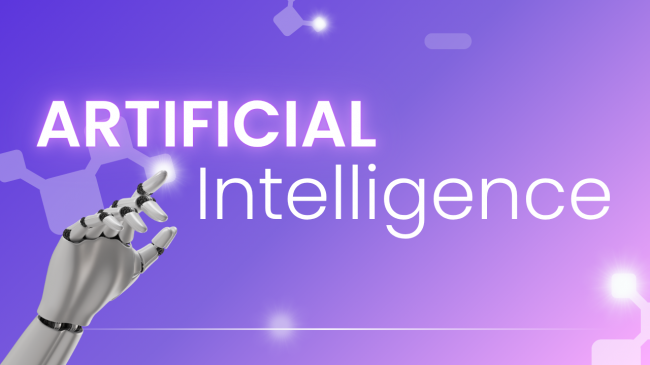On This Page
- What Is DeepSeek AI?
- Why Germany Ordered Apple and Google to Remove DeepSeek
- GDPR Violations Committed by DeepSeek
- Which Countries Have Also Restricted DeepSeek?
- Why Are Apple and Google Involved?
- Is This Just About Privacy? Or Something Bigger?
- How Does This Relate to the EU AI Act?
- What Should AI Developers and Users Learn from This?
- Final Take: Why the DeepSeek Ban Matters
- FAQs
Germany’s recent directive to ban DeepSeek AI from Apple and Google’s app stores marks one of the strongest regulatory moves against a foreign AI chatbot to date. This decision doesn’t just target DeepSeek—it sets the stage for how governments will treat non-compliant AI apps going forward.
In this article, we break down the DeepSeek controversy from every angle: legal, technical, geopolitical, and market impact.
What Is DeepSeek AI?
DeepSeek AI is a Chinese-developed generative AI assistant launched in January 2025.

It positioned itself as a low-cost ChatGPT alternative, offering advanced capabilities such as:
- Multilingual text generation
- Code writing
- File uploading and document analysis
- AI-powered Q&A and summarization
The app quickly gained momentum across Europe and Asia, ranking high in local app stores due to its free access and lightweight design. However, its data handling policies soon triggered red flags.
Why Germany Ordered Apple and Google to Remove DeepSeek
In June 2025, Germany’s Federal Commissioner for Data Protection issued a legally binding order requiring:
- Apple and Google to delist the DeepSeek app from their German app stores
- Justification: “Unlawful processing and transmission of personal data”
- Reference: DeepSeek violated the General Data Protection Regulation (GDPR) by failing to safeguard European user data
The order came after multiple warnings in Q1 2025 and DeepSeek’s refusal to comply with legal demands to localize or anonymize data.
GDPR Violations Committed by DeepSeek
According to reports from Reuters, TechCrunch, and CNBC, DeepSeek was found to be:
| Violation Type | Description |
| Cross-border data transfer | User data was sent to Chinese servers without safeguards |
| Lack of consent | No GDPR-compliant mechanism for opt-in data collection |
| Opaque processing | Users were not informed how their data was used, stored, or retained |
| Denial of user rights | No ability for users to request data deletion or access logs |
Under GDPR, any company processing EU citizen data must provide transparency, purpose limitation, and data minimization. DeepSeek met none of these criteria.
Which Countries Have Also Restricted DeepSeek?
Germany is not alone in taking action. A growing list of countries are tightening restrictions on DeepSeek and similar AI tools:
- Italy blocked DeepSeek in March 2025
- Australia, South Korea, Taiwan, and the Netherlands have issued bans or advisories
- United States has restricted DeepSeek from all federal and state-owned devices in multiple states
- France’s CNIL is investigating, with a ruling expected later this year
This collective action signals an emerging international framework around AI and national security.
Why Are Apple and Google Involved?
Although DeepSeek is developed independently, regulators are now holding platforms accountable for distributing apps that break local laws.
Consequences for Apple & Google:
- They must remove DeepSeek only in Germany—but face reputational and legal risks elsewhere if they don’t act proactively
- This raises questions about platform responsibility for AI model compliance
- App stores may soon need automated legal checks before approving AI apps across regions
Is This Just About Privacy? Or Something Bigger?
While GDPR violations were the official basis, the case touches on broader issues:
1. Digital Sovereignty
Governments don’t want user behavior data leaving national borders—especially not to countries with surveillance regimes.
2. AI Model Exploitation
There are concerns that apps like DeepSeek could use personal data to train models without consent, raising intellectual property and data ownership issues.
3. Geopolitical Risk
China-based AI systems are increasingly viewed as tools of influence or surveillance, particularly when they gather user intent, location, and behavioral signals.
How Does This Relate to the EU AI Act?
The EU AI Act, set to take effect in late 2026, will impose tiered risk categories on AI systems—with chatbots like DeepSeek likely falling into the “high-risk” group.
What’s coming under the AI Act?
- Mandatory risk assessments before launch
- External auditing of training data and outputs
- Required opt-out controls for users
- Real-time documentation of system behavior and decisions
Germany’s DeepSeek action is a preview of future enforcement, even before the AI Act formally arrives.
What Should AI Developers and Users Learn from This?
For Developers:
- Build regional compliance into your apps—GDPR is not optional
- Store data where users live
- Be transparent: publish privacy policies that actually explain data use
- Respect user rights: data access, deletion, correction
For Users:
- Always check where your data goes before using free AI tools
- Use apps from verified, compliant providers
- Look for tools that publish model information, privacy audits, and regional policies
Final Take: Why the DeepSeek Ban Matters
The DeepSeek removal is more than a national enforcement—it’s a global signal. The age of “move fast and break things” is ending. AI products now operate in a legal environment where privacy, security, and transparency are essential features—not optional add-ons.
If you're an AI builder, regulator, or user—watch this space closely. The rules are changing fast, and DeepSeek is the first big name to fall.
FAQs
Is DeepSeek AI still available outside Germany?
Yes, as of now, the app remains available in most global app stores—except in countries that have issued national bans or advisories.
Can DeepSeek return to Germany?
Possibly, but only if it complies fully with GDPR and passes Germany’s data protection review.
Will other apps face similar bans?
Yes. DeepSeek is likely the first of many generative AI tools to face scrutiny as countries align on privacy-first tech regulation.
Post Comment
Be the first to post comment!





